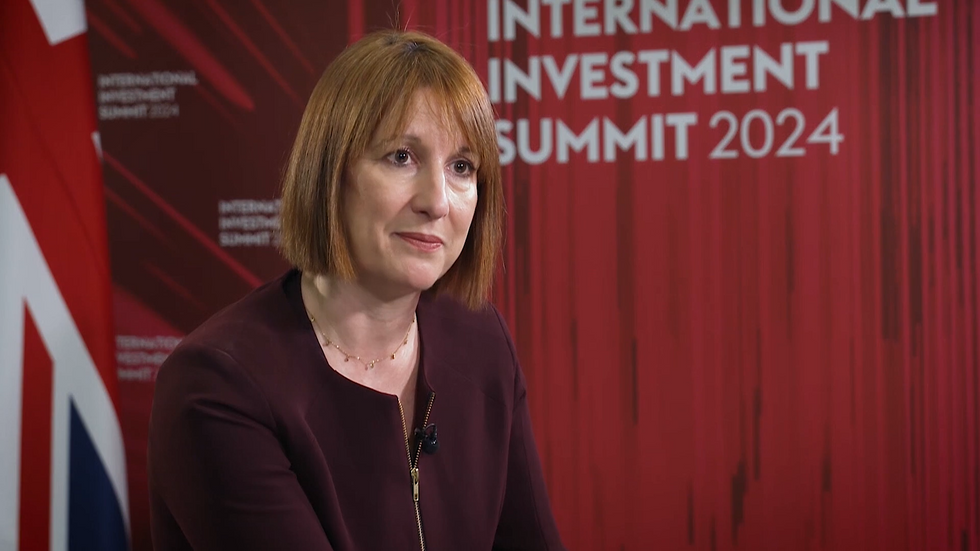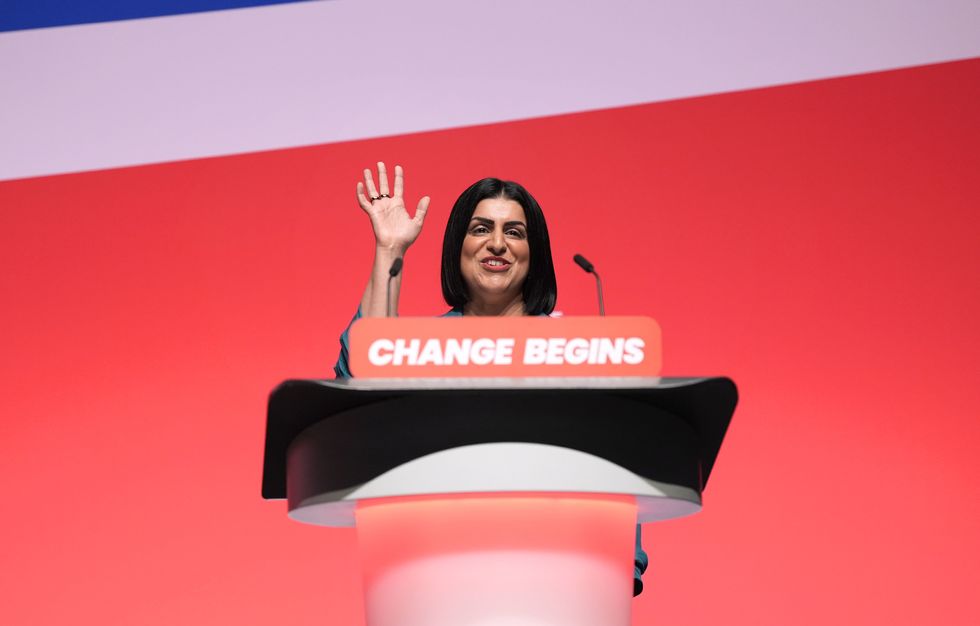Chancellor Rachel Reeves may target Individual Savings Accounts (ISAs) in next week’s Budget, potentially introducing a £500,000 lifetime limit on these tax-free accounts.
Criminals could be spared jail and sentenced to house arrest instead, under new plans by Justice Secretary Shabana Mahmood.
Around 1,100 inmates are set to be released early today as part of the Government’s policy to free up prison space.
Currently, there are just over 2,000 free spaces in prisons across England and Wales.
Sir Keir Starmer is facing pressure from Labour ranks and Caribbean countries to rethink his resistance to reparatory justice for the UK’s role in the slave trade.
SEE BELOW FOR LATEST
Reeves could introduce ‘dangerous’ cap on ISA savings next week

Reeves could introduce ‘dangerous’ cap on ISA savings next week
GB News
Chancellor Rachel Reeves may target Individual Savings Accounts (ISAs) in next week’s Budget, potentially introducing a £500,000 lifetime limit on these tax-free accounts.
This proposal harks back to an idea she floated in 2016 in an article for The Independent with analysts claiming it could be “dangerous” for savers.
Currently, savers and investors can contribute up to £20,000 annually to ISAs without paying tax on the returns.
These accounts have proven immensely popular, with 12.5 million adult ISA accounts subscribed to in the 2022-2023 financial year.
Any changes to the ISA system could have significant implications for savers across the UK, experts are warning.
Jason Hollands, of wealth manager Evelyn Partners, cautioned: “Meddling with ISAs would be quite dangerous for any Chancellor to do. It would very visibly be something that would not be popular.”
Labour could replace prison sentences for low-level criminals with house arrest
 Shabana MahmoodPA
Shabana MahmoodPA
Criminals could be spared jail and sentenced to house arrest instead, under new plans by Justice Secretary Shabana Mahmood.
Later today, Labour will launch a comprehensive overhaul of sentences, with former Conservative Justice Secretary David Gauke to lead the scheme.
The review will consider the advantages of using technology to place criminals in a “prison outside prison”, and get them doing more community service.
Currently, many prisoners are released from prison on “house arrest”, which requires them to wear an electronic tag and follow a curfew. However, this type of punishment cannot be imposed as a sentence.
The review could look to change this.
It comes amid a jail crisis thanks to overcrowding, which has seen thousands of inmates released early in the last six weeks.
Mahmood said: “We have an opportunity now to reshape and redesign what punishment outside of a prison looks like.
“Theoretically a judge could hand down a sentence of house arrest.
“I’m interested in what punishment outside of ag prison looks like.
‘”It still has to be punishment, they still have to have their liberty curtailed, people have to know and believe there are consequences to breaking our laws.”
Starmer faces pressure from Labour and Caribbean nations over reparations
Sir Keir Starmer is facing pressure from Labour ranks and Caribbean countries to rethink his resistance to reparatory justice for the UK’s role in the slave trade as he attends a major Commonwealth summit.
The Prime Minister will travel to Samoa this week for the biennial gathering of heads of government for the 56 nations, where leaders will elect the new Commonwealth secretary general.
All three candidates vying for the job have called for reparations to countries that were affected by slavery and colonialism, but Downing Street has said the issue is “not on the agenda” for the event and “we won’t be offering an apology.”
Labour MP for Clapham and Brixton Hill Bell Ribeiro-Addy said Number 10’s position was “disappointing” and likened it to old “colonial attitudes.”
“The idea that we wouldn’t be addressing it at all and just ignoring the question feels wrong to me, that we would dismiss it when we know that so many people have these concerns – countries we say are our equals, but we’re not willing to discuss something that so many of them have on the agenda.”
“For us to say we don’t want to talk about it at all kind of harks back to colonial attitudes. I think it’s wrong for us not to discuss it and I hope that that will change.”